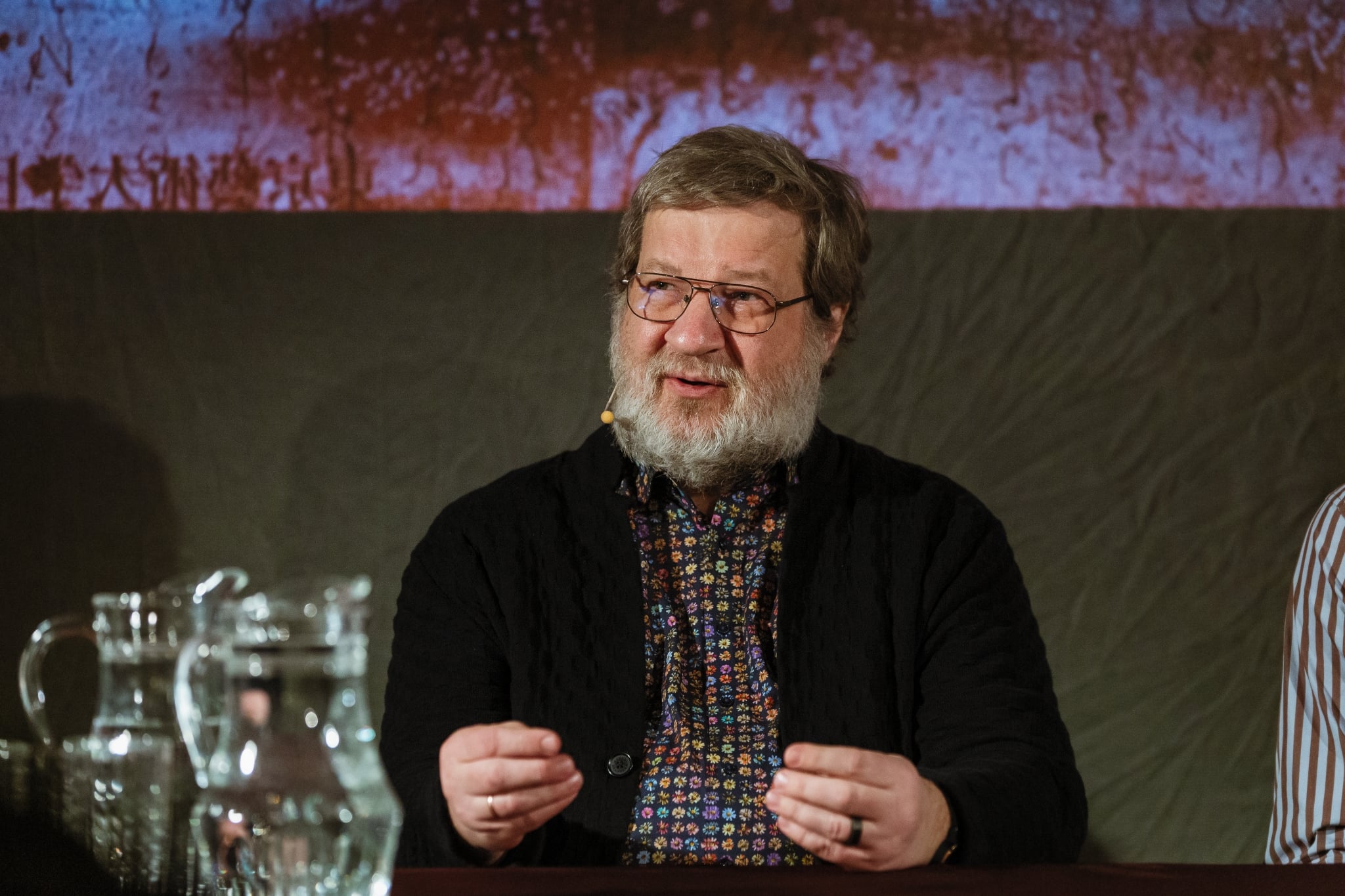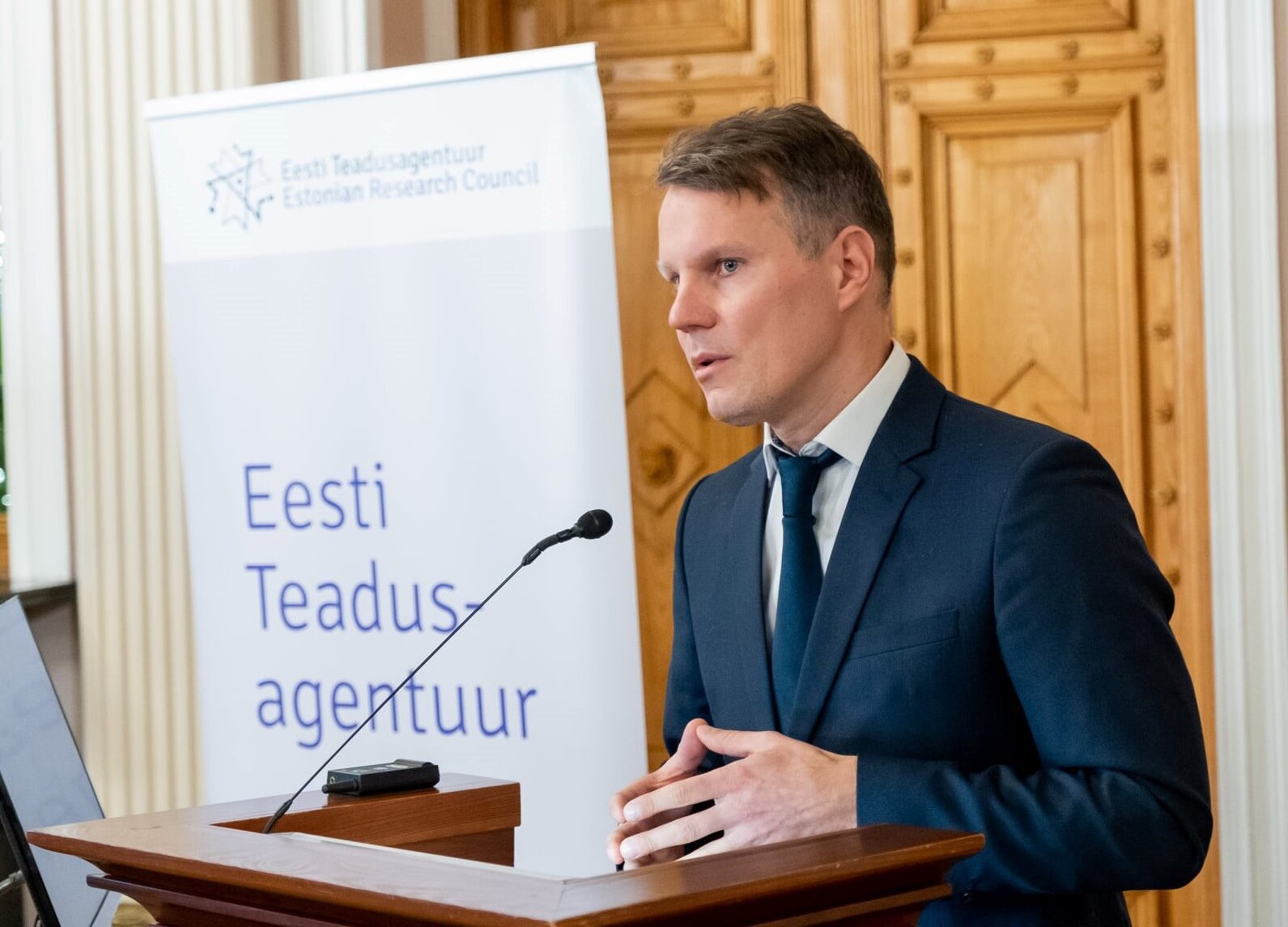Stanford University Libraries, FSI’s Program on Geopolitics, Technology, and Governance, and Stanford’s Center for Russian, East European, and Eurasian Studies, in collaboration with Vabamu and The Ministry of Foreign Affairs of Estonia are pleased to announce that Dr. Kairi Talves, Dr. Liina Kamm, Dr. Rein Raud, and Dr. Juhan Saharov have been awarded the 2024 Short-Term Research Fellowship at Stanford University for Estonian Scholars, Global Digital Governance Fellowship at Stanford University for Estonian Scholars, and Short-Term Research Fellowship at Stanford University for Estonian Security and Foreign Policy Experts.
The annual 2-6-month fellowships enable Estonian researchers to visit Stanford University and make use of its academic knowledge, networks, and collections related to the study of Estonian history, foreign policy, security, digital society and economy, cyber security, smart governance, and technology and trust. The fellowships also aim at enhancing Estonian scholars’ ability to share their knowledge of and experience in issues related to these subjects with the research community at one of the top universities in the world and other relevant entities in Silicon Valley, thus contributing to a better understanding of these topics on a global level.
 Kairi Talves, Estonian Military Academy
Kairi Talves, Estonian Military Academy
Global Digital Governance Fellowship at Stanford University for Estonian Scholars, February–May 2024
Technosociological perspectives in the resilience and security of small countries
My fellowship at Stanford University is related to the research about the role of technology in strengthening national security and resilience in small countries. In today’s security environment, the impact of science and technology on gaining security and resilience is more critical than ever. This is especially important for countries like Estonia and other Baltic States that are on the ‘front line’ in terms of their geopolitical location. The main goal of the small countries with a population of only one or two million is not to describe and shape global strategic threats but rather to be able to adapt as quickly as possible in the environment of possible threats to maintain interoperability and the relevance of cooperation to their allies. AI and robot technologies are clearly increasing the load of information for quicker decision-making. The key to success in military operations is speed. Making quick decisions is becoming the asset that ensures superiority over the adversary. This means that to defend ourselves, we have to increase our readiness to tackle different threats. Attacks in cyberspace, disinformation campaigns, and manipulating energy supplies are some examples of attempts to harm the civilian and military infrastructure, impair our defense, and harm our security. Here, technology can be an enabler itself, either as a direct means of advancing societal dimensions or as a contributor to other cross-cutting enablers. Adopting new technologies requires, however, a techno-cultural mindset and an understanding of human-system and system-of-systems approaches. For technosociological research, a multidisciplinary approach is needed to tie together macro-level techno-cultural and system theories with an understanding of technological and cognitive aspects of human performance. For that purpose, I am looking forward to meet the interdisciplinary atmosphere and cross-discipline discussions at Stanford University.
Kairi Talves is Scientific Adviser in the Estonian Ministry of Defence and Visiting Researcher at the Estonian Military Academy. She has a PhD in Sociology from the University of Tartu. Her main research interests cover the different aspects of technology in society: societal development and change (e.g., technological developments) and their social impact, people’s attitudes and coping in the context of rapid societal changes, public acceptance of technology and technology in the military: risks, trust, acceptance, ethical aspects, challenges of human-machine interaction, cognitive warfare, innovation of military organizations, technology, and states’ power balance. She has published a number of research papers in international journals and chapters in edited volumes. Together with Prof. Dierk Spreen from the University of Bundeswehr Munich, she is the co-editor of the book “Technology in the Military Now: Sociological, Cultural, and Ethical Perspectives,” which is planned to be published in Springer in 2025.
 Liina Kamm, Cybernetica AS, Information Security Research Institute
Liina Kamm, Cybernetica AS, Information Security Research Institute
Global Digital Governance Fellowship at Stanford University for Estonian Scholars, April–June 2024
Accelerating the practical uptake of privacy enhancing technologies in e-government
Working with and researching privacy enhancing technologies (PETs), I’ve often seen the reluctance in adopting these new methods, whether it is the computational overhead, the seemingly unconvincing value proposal or just a reluctance to part with the status quo. PETs such as secure multi-party computation have been in development for more than a decade, yet the practical deployments on real data can be still all be counted on two hands.
The Estonian Ministry of Economic Affairs and Communications has a concept and roadmap for deploying PETs in Estonia in the coming 3 to 5 years for different e-government services. Estonia is a small country that is digitally fairly advanced. It is suitable for testing different digital solutions and bleeding edge technologies. However, if only a small country starts using PETs in e-government, the uptake is not wide enough to foster proper international collaboration. On the other hand, the problems and experiences of (governmental or private sector) organisations from other countries can widen the analysis and abstract use cases. In our research, we found that one of the countries with the most practical PET use cases is the United States.
My plan is to interview relevant stakeholders in the United States, both in the Silicon Valley and Washington, DC to ask the same kinds of questions that we piloted in Estonia. Based on this, I will find the similarities and differences in the general use cases and can propose a more holistic set of abstract use cases, propose a roadmap that any country can follow, show the value chains and benefits that using PETs have for ensuring privacy and (cross-border) collaboration. My end-goal is to write a book about the practical uptake of PETs in e-government.
Liina Kamm is a senior researcher and principal investigator at Cybernetica (a deep-tech SME in Estonia). She started her professional career designing software for the Estonian Genome Foundation and for cross-border clinical trials. She then focused her research on enabling privacy-preserving statistical analysis for social sciences and genomics. Liina received her PhD in computer science from the University of Tartu. She is Cybernetica’s principal investigator for the Horizon Europe project CHESS (Cyber-security Excellence Hub in Estonia and South Moravia) and the Office of Naval Research (ONR) project PAI-MACHINE on machine-optimising machine learning algorithms for secure multi-party computation. She is the chairman of Technical Committee 4 (Information technology) of the Estonian Centre for Standardisation and Accreditation, and represents Estonia in ISO/IEC JTC 1/SC 27 Working Groups 2 and 5.
 Rein Raud, Tallinn University
Rein Raud, Tallinn University
Short-Term Research Fellowship at Stanford University for Estonian Security and Foreign Policy Experts, March–April 2024
The Post-Soviet political subject: a socio-cultural inquiry
The goal of the present project is to analyze the political, social and cultural discourses that have contributed to the formation of the post-Soviet political subject in its various forms, notably in Russia. Drawing on my theories of selfhood and subjectivity, I intend to show how Russian/Soviet culturally specific discourses of subjectivity have contributed to the formation of the present situation in which Russian imperalism is reborn and cordially endorsed by many Russian citizens in an increasingly totalitarian form. The central claim of my argument is that democracies and certain authoritarian societies do not rely on the same set of ideas and concepts about how social processes are organized or how individuals relate to and define themselves in their interaction with political institutions. One of the cornerstones of my analysis is my theory of “secondary” modernities (Japan, China, Russia, Turkey and some others), that is, countries which (1) have not been colonized, but have traditionally had imperial pretentions themselves, (2) have historically not participated in the development of modernity, but have decided to adopt it in order to maintain political competivity in the late 19th and the 20th century, and (3) have mostly enforced modernization from above and much more quickly than the process historically took in the West. As a result, each of these societies has produced a heterogeneous ethos in which Enlightenment ideas or derivations thereof are blended with traditionalist and other non-Western values. The resulting precarious balance may tilt toward both an extensive endorsement of the ideals of modernity at some point and their rejection on nationalist and particularist grounds at some other time. I argue that this is not a paradox or an agonistic struggle between ideological adversaries within a cultural space, but the natural form that all secondary modernities have taken in one way or another.
Rein Raud is the Distinguished Professor of Asian and Cultural Studies at the School of Humanities, Tallinn University. His circle of research interests is broad and ranges from cultural semiotics and sociology to process philosophy and theories of the subject on the one hand, and various aspects of Asian and Western cultural history on the other. His academic books include Being in Flux: A Post-Anthropocentric Ontology of the Self (Polity, 2021), Asian Worldviews: Religions, Philosophies, Political Theories (Wiley-Blackwell 20121), Meaning in Action: Outline of an Integral Theory of Culture (Polity 2016) and Practices of Selfhood (together with Zygmunt Bauman, Polity 2015).
 Juhan Saharov, University of Tartu
Juhan Saharov, University of Tartu
Short-Term Research Fellowship at Stanford University for Estonian Scholars, March-April 2024
From Economic to Political Innovation: The Language of Estonian Perestroika and Breakup of the Soviet Union
Estonia is globally known for its digital state and start-up culture, but less for its political innovation in the late 1980s, which played an important role in the collapse of the Soviet Union. As the first Soviet republic to issue a „Declaration of Sovereignty“ in November 1988, it established a model for the other republics to follow in a process that became known as the Parade of Sovereignties, culminating in the Soviet Union`s dissolution in 1991. American political scientist Edward W. Walker later said that “sovereignty was the concept that killed the Soviet Union”, while the former president of Russia, Boris Yeltsin similarly confessed in 1994 that “sovereignty” was the main concept to blame in the breakup of the Soviet empire. However, a question has remained – why did “sovereignty” emerge at the centre of political discourse in Soviet Estonia and not somewhere else? During my stay at Stanford University, I work on a book project which deals with the question of how previous economic and managerial innovation helped to work out the political innovation in Soviet Estonia. The book highlights the global expert languages and local academic community as pre-existing platforms for Estonian perestroika and traces the transformation of the idea of the republic`s economic independence (self-management) into the project of political independence (sovereignty). The book starts its story from the 1960s, when Estonia became an economically „experimental republic“ in the Soviet Union, to the political action of the Estonian expert and scholarly community during the perestroika period (1986–89). At Stanford, I plan to work at the Hoover Institution Archive with materials on the economic reforms and sovereignty debates within the Soviet political and academic elite during the period, as well as share the story of Estonian perestroika with Stanford students and scholars.
Juhan Saharov is a Research Fellow of Political Theory at the Johan Skytte Institute of Political Studies, University of Tartu. His research is focused on the intellectual history of perestroika in the Soviet republics, market socialism, and expert languages during the late Cold War period. His doctoral dissertation „From Economic Independence to Political Sovereignty: Inventing “Self-Management” in the Estonian SSR“ was awarded Main Prize for a PhD dissertation by the Estonian Research Council in 2021. He has published on the role of experts and academic communities in the Soviet perestroika in the journals like Contributions to the History of Concepts, Europe-Asia Studies, and Acta Historica Tallinnensia. He has also written on the Czech dissident movement and its rhetorics in the Czech Journal of Political Studies. He is a member of the research grant „Self-Determination of Peoples in Historical Perspective” at the University of Tartu.

 Back
Back